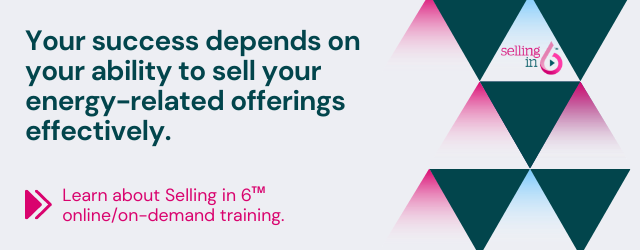Have you ever encountered a prospect who would only approve a project if it qualified for a rebate or incentive? Perhaps they said something like, “Efficiency upgrades used to make sense when there were a lot more rebates. If you can’t get me a rebate on this project, I’m not interested.” Today, we’ll discuss why statements like these reflect at least two myths, and how you should preemptively neutralize objections.

As some of you may know, I was the founder and CEO of a rebate administration business before co-founding Selling Energy. When I started that business model in 2003, there were about $1.5 billion worth of efficiency programs in the US and Canada. The last time I looked, there were about $9 billion. As you can clearly see, rebates are not a thing of the past – they’re still alive and well today.
So, the first myth is that there are fewer rebates now than before. There are plenty of regions around the country where the opposite is true.
The second myth is that you need a rebate or incentive to justify a project.
How do you convince someone that the project is worth pursuing, even without a rebate? I take the position that most projects, once properly penciled, should not need rebates or incentives to make them cost-effective. That said, rebates and incentives can help justify pursuing higher-first-cost, premium-efficiency equipment. However, a true sales professional is not deterred by a lack of "free money" to help pay for a project.
If you recall the blog I wrote recently about the three value “buckets” (utility-cost financial benefits; non-utility-cost financial benefits; and, non-financial benefits), you’ll know that there are many different ways to demonstrate value. The benefits from the second and third “buckets” – when calculated properly – can have a direct financial impact on the project. By “calculated properly,” I mean quantified and monetized so that they can be appropriately incorporated into a proposed project’s financial summary. Once you do that, you might just find that the denominator is greatly enhanced with benefits that far outweigh projected monthly utility savings, rebates and/or incentives.







